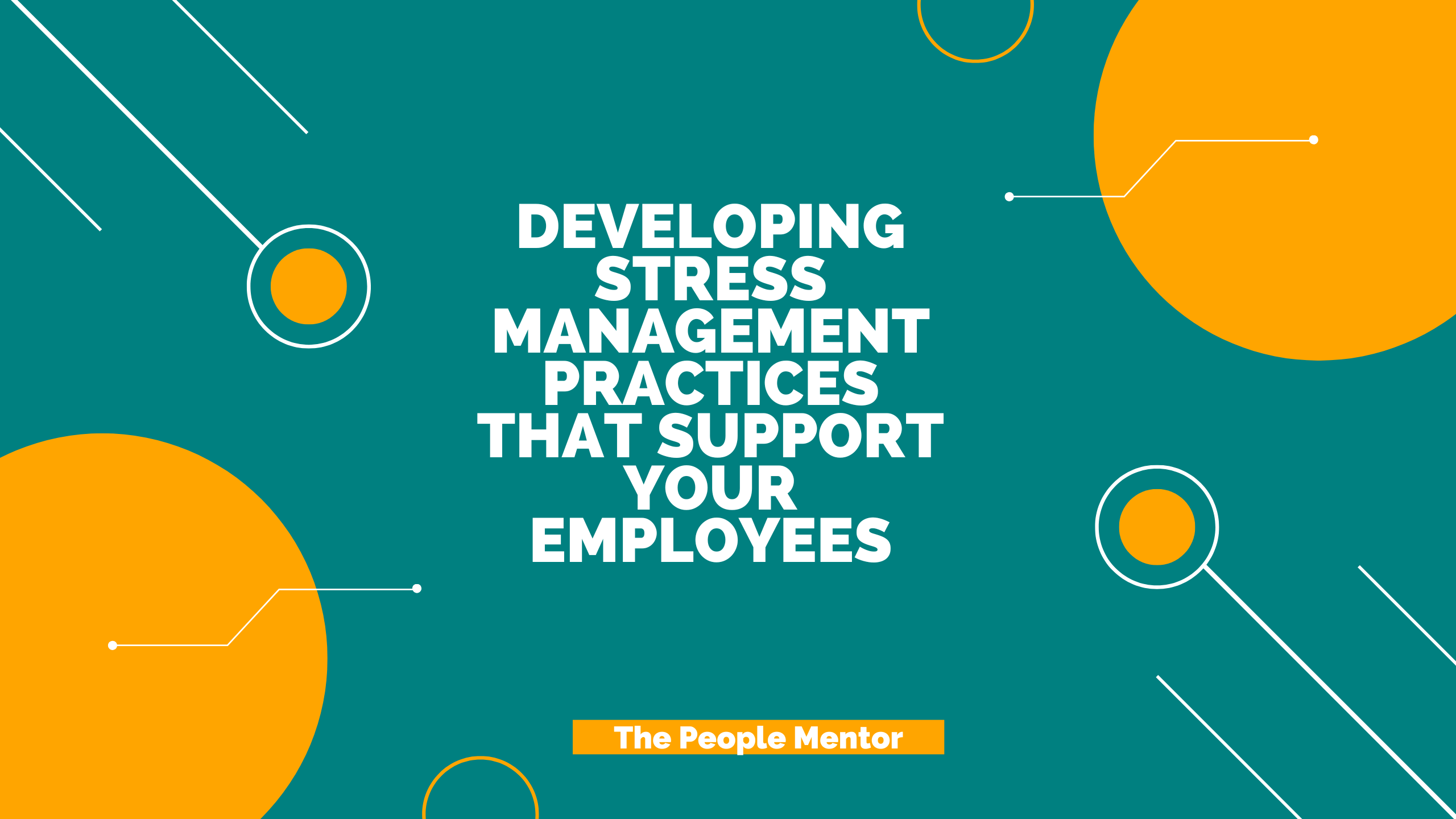There is nothing worse for a stressed employee than a business that fails to enact a proper stress management process.
Businesses often fail to understand the negative outcomes on employees from stress in the workplace. Frequently one stressed employee will create ripples across the team through lack of attendance, unusual behaviours, and lower productivity. It can end up sending other employees off sick if not dealt with correctly.

Training Managers to follow the stress management process in a kind and compassionate way will stop unfair dismissal claims, and allegations of discrimination because of a disability or a grievance.
Per CIPD Over 11 million working days are lost a year because of stress at work
Stress can cause illness and ill health, from mental to physical illness. Covid-19 has added more worry and pressure, contributing to the stress load.
What are the steps you need to take as an Employer?
Train Managers to recognise signs of stress
Often the symptoms can range from performance deteriorating to unusual behaviours. Lapses in memory, less or more time at work, over-reactions, crying, temper outbursts and more are signs that a 1-2-1 is needed to create a supportive space for the person to open up.
The approach for the conversations
An approach of being gentle and asking open questions works best. Accusations and assertive attitudes from the manager only will put the employee’s back up and close the conversation down.
The UK Health and Safety Executive (HSE)’s Management Standards provide guidance for employers on how to identify and manage the causes of work-related stress.
The stress risk assessment
When a team member mentions stress as the employer you must carry out a stress risk assessment with the employee.
A calm and empathetic approach with these works best.
As does, an attitude taken of helping the employee. Do remember though if struggling with how to resolve the issues raised, it is okay to say you will hold a further meeting to discuss possible solutions to alleviate the stress issues raised.
The stress risk assessment must be documented and then an agreement reached on how often to review. Personally, I find meeting weekly for a while can give the extra support needed, providing any actions arising are taken forward.

Possible Options to Consider
Consider options from providing relaxation classes, resilience training, support with work tasks, counselling, and a buddy system. But always ask the employee what they think would help them. It does not work enforcing solutions on people.
It’s always good to remember that you won’t always have the answers, so the right signposting is vital. Look at what is contained in-house, alternatively sign-post the employee to an outside organisation for help. .
How you as an Employer can help your Managers and employees
Give Managers a safe space to discuss cases confidentially with their lead
Train managers to hold empathetic and understanding conversations. Getting that right makes a huge difference.
Implement resilience and mental health training for all employees.
Monitor the situation and if seeing a rise in stress cases, consider bringing in someone to carry out a stress risk assessment as a team. These can work well as a questionnaire is completed anonymously and the results are put into RAG status to then discuss as a team as a whole. This gives control back to the team and if managed well can result in actions that make a huge difference, speaking from experience.
Are you struggling with how to take these kinds of issues forward?
Often an initial review to establish what the key needs are for your managers and employees makes a huge difference.
Understanding where to start can seem such a headache.
That’s where I can help. I can pinpoint what exactly is needed, and how it could be provided without it increasing your workload.
The People Mentor specialises in developing people management skills and resilience within teams. Creating better-performing teams who use continuous improvement tools, so your business doesn’t stagnate.






